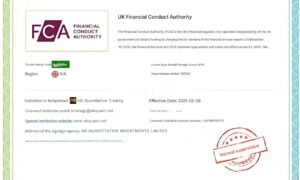Diversification is the key in the present-day world, which explains why individuals and legal entities often carry out activities in several countries at once. Effective global wealth management is impossible if you only generate income in your country of residence.
Offshore income is a must, but you will need to make a careful plan to adhere to all international regulations. This article describes the main details related to offshore income per se and its management.
Understanding Offshore Earnings
Offshore income is the one you generate outside the country where you reside with the help of:
- International Business Operations: Companies conducting business in multiple countries derive offshore income from foreign markets, sales, services, and global partnerships.
- Foreign Investments: Earnings from stocks, bonds, mutual funds, and other investment vehicles held in offshore jurisdictions.
- Real Estate Holdings: Rental income and capital appreciation from properties owned in different countries.
- Royalties and Intellectual Property: Earnings from patents, trademarks, copyrights, or licensing agreements involving foreign entities.
- Freelance and Remote Work: Digital professionals and remote workers often receive payments from clients based in different countries.
Legal/Illegal Offshore Earnings
Compliance with laws is the most important aspect of generating income abroad. All your transactions must be transparent and properly recorded, as you may need to submit reports to relevant authorities. In a nutshell, here is the difference:
- Legal Offshore Earnings are reported to the appropriate tax authorities, comply with local and international regulations, and are structured using lawful financial instruments.
- Illegal Offshore Earnings are hidden from tax authorities to evade taxes, launder money, or engage in fraudulent financial activities. Concealing offshore earnings may entail fines and legal prosecution.
Why Earn Money Abroad?
- You Can Expand Business Operations
If your venture operates in more than one jurisdiction, your business will most likely remain stable in the face of economic trouble. What is more, you can benefit from more relaxed regulations than back home.
- Tax Efficiency
You can absolutely lawfully minimize your tax liabilities as offshore destinations offer great tax incentives:
- Corporate Taxes are minimal or even equal to zero!
- Zero rates: No income, capital gains, or dividend taxes – doesn’t that sound good?
- Double Taxation Treaties: Agreements between countries prevent individuals and businesses from being taxed twice on the same income.
However, tax laws differ across jurisdictions. Some countries tax only locally sourced income, while others require tax residents to report and pay taxes on global earnings. Understanding these laws is essential to avoid legal complications.
- Asset Protection Strategies
Individuals and legal entities that derive profits abroad have an additional financial security layer. Jurisdictions like Nevis or Belize offer impenetrable asset protection; for instance, a creditor who wants to grab your money will have to obtain the decision of a local court (which is nearly impossible), so your wealth will remain intact in 99.99% of cases.
- Financial Privacy and Confidentiality
Certain offshore jurisdictions uphold strict confidentiality laws that protect the identity of account holders and their financial transactions. While international regulations have increased transparency, offshore financial structures still provide legally compliant ways to maintain financial privacy.
Managing Offshore Earnings for Smart Investors
If you want to earn as much as possible and remain a law-obedient person, you will need a structured strategy. Offshore earnings for smart investors involve choosing an appropriate jurisdiction and legal structure and making sure that all legal aspects are kept under control.
- Offshore Companies
An offshore company can operate in several markets and pay low taxes. In a word, you will enjoy:
- Limited Liability Protection: Personal assets are separated from business liabilities.
- Benign Taxation: Many offshore jurisdictions provide low-tax or tax-free business environments.
- Simplified Business Operations: Certain offshore locations offer minimum red tape during incorporation.
- Offshore Investment Portfolios: Diversifying Globally
An ABC of investment is diversification as it minimizes risks and results in more stability. Consider opening a brokerage account with an offshore bank to keep assets – even alternative ones such as crypto!
- Offshore Real Estate Holdings
What can you get by forming an offshore entity and investing in real estate through it? Let’s take a look:
- Capital Growth: Many foreign real estate markets provide higher returns compared to domestic markets.
- Asset Protection: Offshore real estate structures shield properties from potential legal disputes.
- Tax Benefits: Certain jurisdictions impose lower property taxes and capital gains taxes on foreign investors.
- Offshore Banking: Secure Financial Management
The best solution is to open a multi-currency account, as it proves best in terms of long-term financial security and flexibility in wealth management. The best jurisdictions for offshore banking are:
- Switzerland: Known for financial stability and strong banking privacy laws.
- Singapore: A leading offshore banking destination offering advanced financial services.
- Luxembourg: A hub for international wealth management and investment funds.
Taxation of Offshore Earnings
The taxation of offshore earnings depends on multiple factors, including:
- Tax Residency: Many countries determine tax obligations based on residency status. Some impose global taxation, requiring individuals to report all worldwide income.
- Tax Treaties: Bilateral agreements that prevent double taxation and reduce tax burdens on offshore earnings.
- Types of Offshore Earnings: Business income, dividends, capital gains, and interest income may be subject to different tax treatments based on jurisdictional tax policies.
Ensuring Compliance with Offshore Income Regulations
There are stringent international regulations that keep offshore income under control:
- FATCA is a U.S. law requiring foreign financial institutions to report American account holders.
- CRS is an international agreement that mandates the automatic exchange of financial account information between participating countries.
- AML Regulations are the laws designed to prevent illicit financial activities.
Non-compliance may entail penalties, asset seizures, and all kinds of legal consequences. Keep your financial records appropriately and work with tax experts to avoid unpleasant surprises.
Challenges and Risks of Offshore Earnings
Offshore income does have its challenges.
- Offshore tax laws are often modified, so you will have to keep your finger on the pulse or delegate it to your advisor.
- Misconceptions about offshore finances may lead to increased attention on the part of financial institutions and government agencies.
- Navigating international tax laws and reporting obligations requires expert financial guidance.
Final Thoughts: The Importance of Strategic Planning
Offshore earnings present lucrative opportunities for global investors, but they require careful structuring and strict compliance with international tax laws. Engaging professional financial and legal advisors ensures that offshore strategies align with both regulatory requirements and long-term wealth-building goals. By implementing well-planned offshore financial structures, investors can optimize their earnings, protect assets, and achieve financial security in an increasingly complex global economy.































